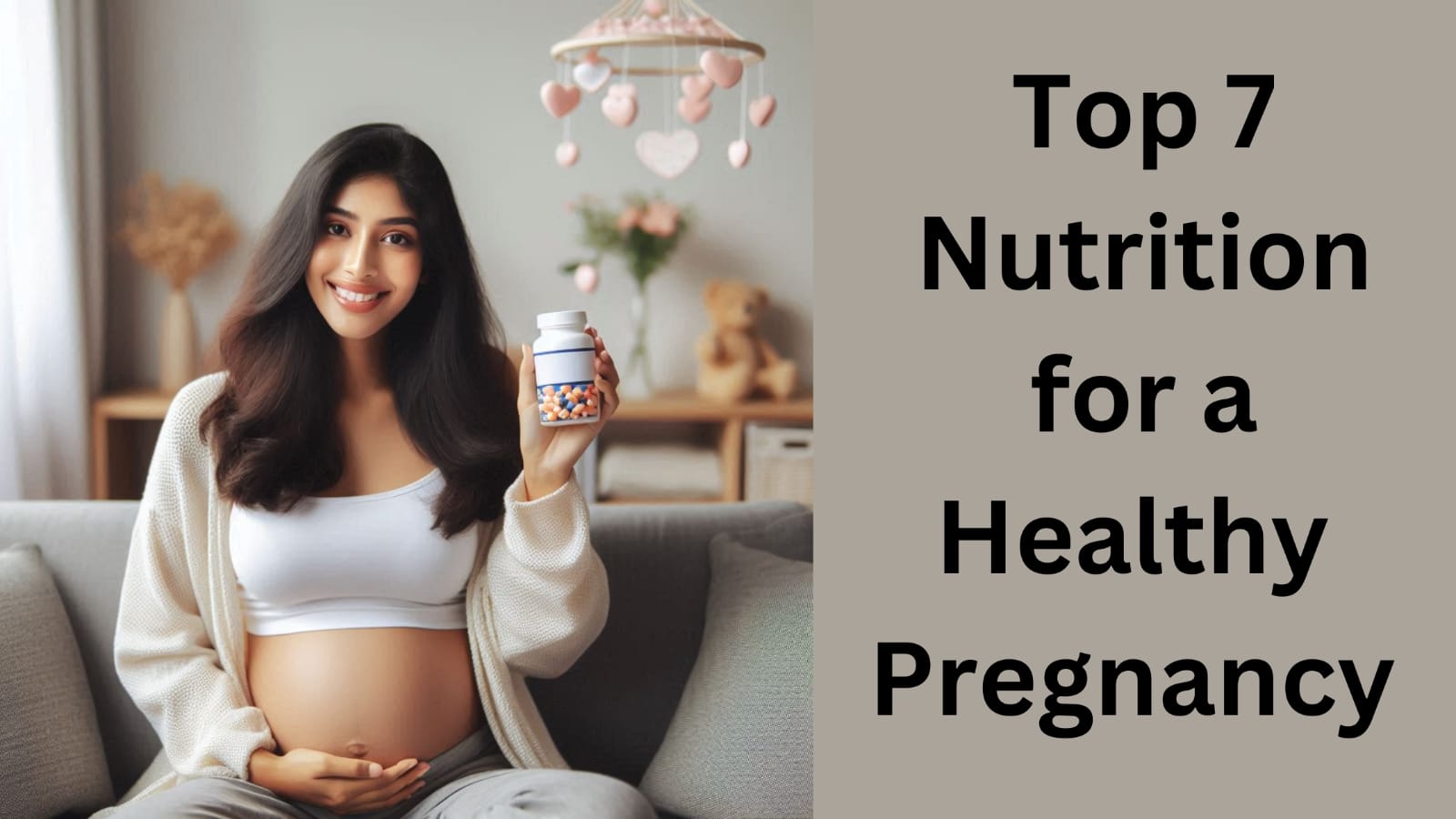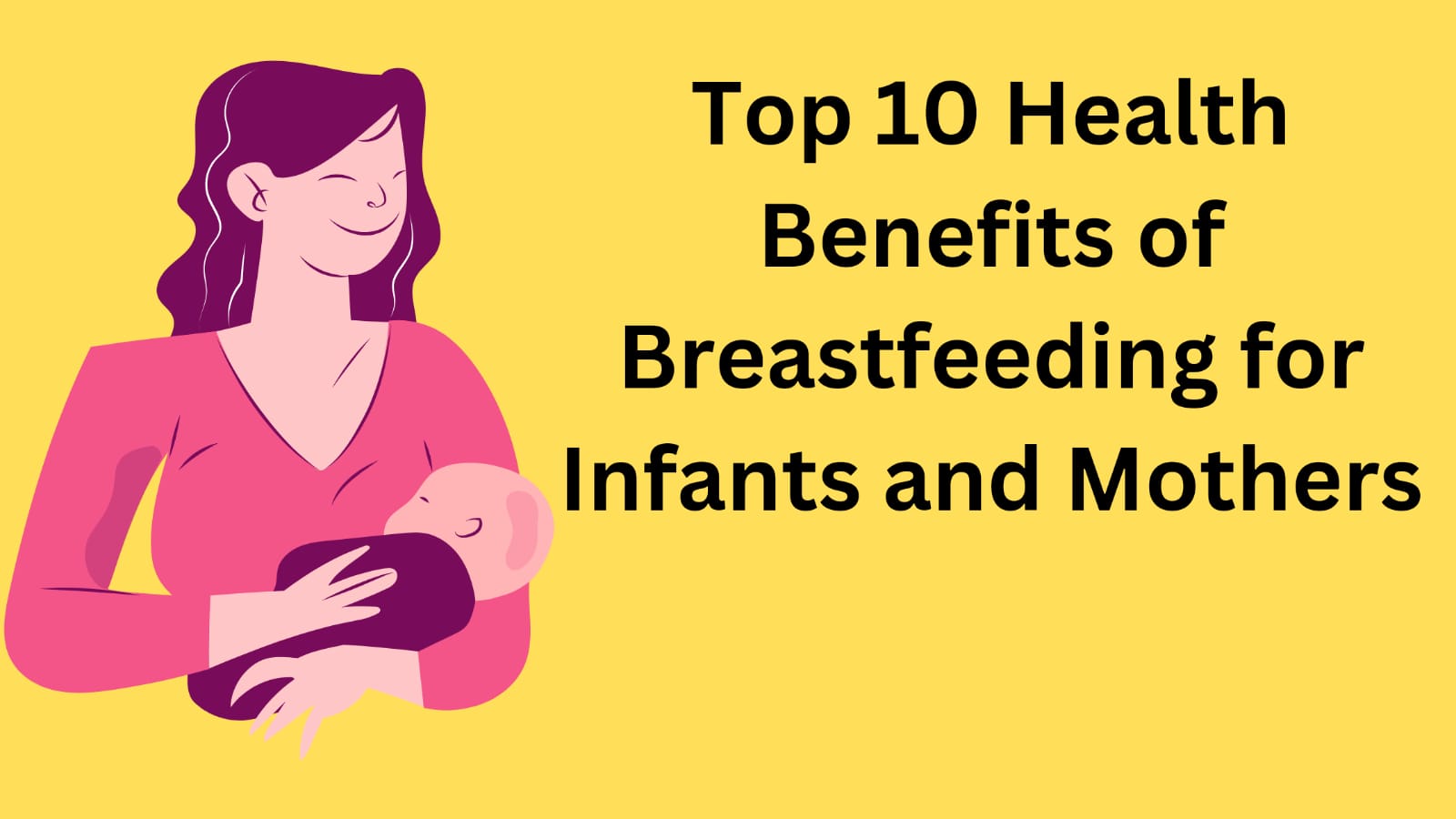Table of Contents
ToggleTop 7 Nutrition for a Healthy Pregnancy
Pregnancy is a very important time in a mother and baby’s lives because they need a lot of nutrition for overall growth and development. You need to make sure you are getting the right nutrients because they will give you the strength and energy to last the full nine months of your journey, as well as the ability to choose a normal and healthy delivery. There power nutrition provide and make a foundation for you healthy baby and mother. I have listed the top 7 nutrients here that you should absolutely consume while pregnant.

1. Folic Acid: The Essential B vitamin
You should take it as your first and main source of nutrition because it helps prevent neural tube defects, which are severe abnormalities of the brain and spinal cord. The neural tube forms in the first month of pregnancy, often before a woman knows she is pregnant. You can even begin if you intend to become pregnant. It also provided you with the energy and strength you needed to conceive a healthy child. You must take the first trimester while you are pregnant.
Benefits of take folate:
- Prevention of Neural Tube Defects
- Reduces the Risk of Birth Defects
- Supports Placental Development
- DNA Synthesis and Cell Growth
- Reduces Risk of Pregnancy Complications
- Promotes Maternal Health
Recommended intake
A minimum of 400–800 micro grams (mcg) should be taken each day.
Sources of folic acid
Green leafy vegetables are a good source of folic acid; just make sure to thoroughly wash them before consuming. Kidney beans and chickpeas.Nuts and certain fruits, such as bananas and oranges.
Supplementation
In addition to food, supplements are available. The dosage that your medical specialist has prescribed. You should take it every day; if you forget, you can also take an alarm. The health of your infant depends greatly on it.
2. Iron: Building Blood and Energy
The second major important nutrition that making hemoglobin, the protein in red blood cells that carries oxygen to other cells. In pregnancy the mother blood volume increased by 50 percent and also increased the requirements for infant. Which is necessary for oxygen transport in the blood. Iron deficiency can lead to anemia, which can cause fatigue and increase the risk of infections.
Benefits of taking iron:
- Prevention of Anemia
- Support for Baby’s Development
- Reduced Risk of Low Birth Weight
- Boosts Immune System
- Improved Energy Levels
Recommended intake
A minimum 27 milligrams (mg) should be taken each day.
Sources of Iron
Lean meats (beef, chicken, turkey), fish, beans, lentils, spinach, iron-fortified cereals, and whole grains.
Tips for Absorption
Consuming vitamin C-rich foods (such as oranges, strawberries, bell peppers) alongside iron-rich foods can enhance iron absorption. Avoid taking iron with calcium-rich foods or supplements as calcium can inhibit iron absorption.
Supplementation
In addition to food, supplements are available. The dosage that your medical specialist has prescribed.
Note
It’s important for pregnant women to consult their healthcare provider before starting iron supplements, as excessive iron can also have adverse effects. The dosage that your medical specialist has prescribed.
3 Calcium: Building Strong Bones
Calcium helps in making strong bones and healthy teeth of your baby. It is also plays a role in the healthy functioning of the circulatory, muscular, and nervous systems. If a pregnant woman doesn’t get enough calcium, the body will take it from her bones to supply the baby, which can weaken her own bones. That’s why you have to take proper dose of calcium.
Benefits of taking Calcium:
- Supports Fetal Bone Development
- Prevents Maternal Bone Loss
- Reduces the Risk of Hypertension and Preeclampsia
- Aids in Blood Clotting
- Promotes Healthy Weight of the Baby
Recommended intake
It is recommended that pregnant women get about 1,000 milligrams of calcium per day.

Sources of Calcium
Dairy products, leafy green vegetables, fortified foods.
Supplementation
Supplements can help meet this requirement. As always, it’s important to consult with a healthcare provider for personalized advice on calcium intake during pregnancy.
4. Protein: The Building Block of Life
Protein helps to make building block of life of fetal it’s also helps in supply of blood and development of tissue. Protein create a foundation of you baby’s growth and helps in gain weight. It provides vital nutrition to your baby. It is essential for the growth and development of fetal tissues, including the brain. It helps build muscles, skin, and organs.
Benefits of taking protein:
- Supports Fetal Growth
- Placental and Uterine Growth
- Maternal Tissue Growth
- Hormone and Enzyme Production
- Immune Function
- Reduces the Risk of Pregnancy
- Energy Supply
Recommended intake
It is generally recommended that pregnant women consume about 75-100 grams of protein per day, depending on their individual needs.
Sources of protein
Include lean meats, poultry, fish, eggs, dairy products, legumes, nuts, and seeds.
Supplementation
Supplements can help meet this requirement. As always, it’s important to consult with a healthcare provider to determine the appropriate protein intake for a healthy pregnancy.
5 Omega-3 Fatty Acids: Supporting Brain and Eye Development
Omega-3 fatty acids, particularly DHA (docosahexaenoic acid), are crucial for the development of your baby’s brain and eyes. These healthy fats are also beneficial for the mother’s heart health. Helping to maintain healthy blood pressure and cholesterol levels during pregnancy. It also help reduce the risk of postpartum depression by supporting overall brain health and function in the mother.
Benefits of taking Omega-3 Fatty Acids:
- Brain and Eye Development
- Reduces Risk of Preterm Birth
- Improves Birth Weight
- Supports Maternal Mental Health
- Anti-Inflammatory Properties
- Healthy Immune System
- Cardiovascular Health
Recommended Intake
At least 200 milligrams (mg) of DHA daily.
Sources of omega-3 fatty acids
Include fatty fish (such as salmon, mackerel, and sardines), flax seeds, chia seeds, walnuts, and fortified foods.
Supplementation
If dietary intake is insufficient, omega-3 supplements, particularly those containing DHA and EPA (eicosapentaenoic acid), may be recommended. Pregnant women should consult with their healthcare provider before starting any supplements to ensure they are safe and appropriate.
6. Fiber: Keeping the Digestive System Healthy
Hormonal changes during pregnancy can slow down the digestive system, leading to constipation. A high-fiber diet helps maintain a healthy digestive system and prevent constipation. It also helps control blood sugar levels and may prevent gestational diabetes. High-fiber foods are often lower in calories and provide a feeling of fullness, which can help manage weight gain during pregnancy.
Benefits of taking Fiber:
- Prevents Constipation
- Reduces the Risk of Hemorrhoids
- Manages Blood Sugar Levels
- Supports Healthy Weight Gain
- Improves Digestion
- Lowers Cholesterol Levels
- Supports a Healthy Gut Microbiome
Recommended Intake
Pregnant women should aim for 25 to 30 grams of fiber daily.
Sources of Fiber
: Whole grains (oats, brown rice, quinoa), fruits (berries, apples, pears), vegetables (broccoli, carrots, peas), beans, lentils, and. It’s also important to increase fiber intake gradually and drink plenty of water to help fiber do its job effectively. Consulting with a healthcare provider can provide personalized guidance on meeting fiber needs during pregnancy.
7. Hydration: Essential for Health
Staying hydrated is crucial during pregnancy as water is essential for forming amniotic fluid, aiding digestion, and increasing blood volume. Dehydration can lead to complications such as headaches, nausea, cramps, and even preterm labor. Proper hydration can help minimize swelling and edema, which are common during pregnancy, especially in the legs, feet, and hands.

Benefits of Hydration:
- Supports Fetal Development
- Prevents Dehydration
- Reduces Swelling
- Aids Digestion and Prevents Constipation
- Helps Nutrient Transport
- Regulates Body Temperature
- Reduces the Risk of Urinary Tract
- Maintains Energy Levels
- Supports Skin Health
- Prevents Headaches
Recommended Intake
Pregnant women are generally advised to drink about 8-12 cups (64-96 ounces) of fluids per day, but individual needs may vary. It’s important to listen to your body and drink when thirsty, while also paying attention to signs of dehydration such as dark urine, dizziness, or dry mouth. Always consult with a healthcare provider for personalized hydration recommendations during pregnancy.
Additional Tips
Prenatal Vitamins: Taking a prenatal vitamin can help ensure you are getting all the necessary nutrients.
Avoid Harmful Foods: Stay away from foods that can be harmful during pregnancy, such as raw or under cooked seafood, unpasteurized dairy, and deli meats.
Moderation: Eat a balanced diet and avoid excessive intake of any one type of food.
Conclusion
Proper nutrition during pregnancy is key to a healthy mom and baby. By following these top 7 nutrition tips, you can ensure that you and your baby get the necessary nutrients for a healthy pregnancy. Always consult with your healthcare provider to tailor your diet to your specific needs. Remember, every bite counts in nurturing a new life. Stay healthy, stay informed, and enjoy this.
Moderation and Balance: Eating a variety of foods ensures you get a range of nutrients. Avoid excessive intake of any one type of food.
Source : Healthline





3 Comments
[…] Also Read: Top 7 Nutrition for a Healthy Pregnancy […]
[…] Also Read: Top 7 Nutrition for a Healthy Pregnancy […]
[…] Also Read This: Top 7 Nutrition for a Healthy Pregnancy […]